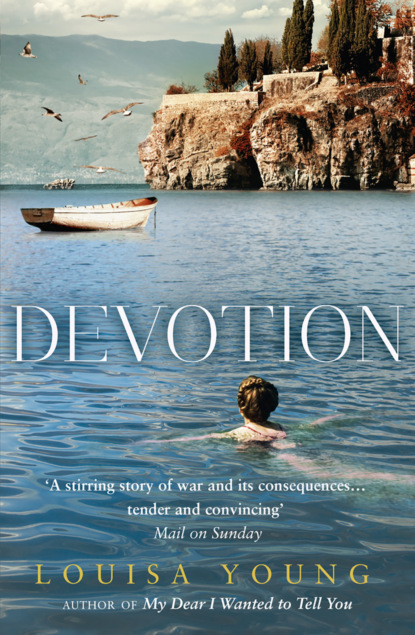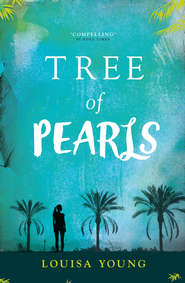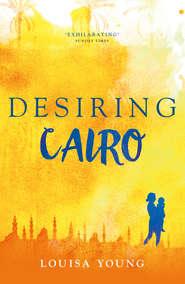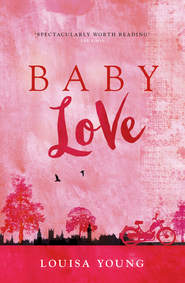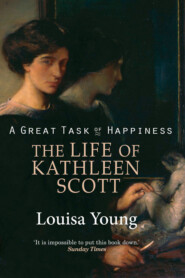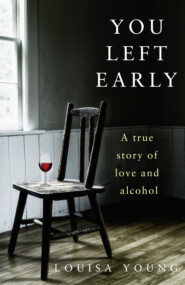По всем вопросам обращайтесь на: info@litportal.ru
(©) 2003-2024.
✖
Devotion
Настройки чтения
Размер шрифта
Высота строк
Поля
Upstairs, during the siesta, Tom took his little Italian/English dictionary, and worked out Nenna’s phrase. L’ha detto un ragazzo a scuola. ‘A boy at school said it.’
He put the dictionary in his pocket. He would need it, he thought, during these linguistically challenging days.
Tom and Nenna were not often alone, and the opportunity did not arise for him to pursue the question of the boy at school and the death of Jesus. Out with Kitty, Nadine or the small boys, Nenna introduced them to every stone animal in the neighbourhood, and many others. Later, in the Piazza della Repubblica, she showed them the fountain full of naiads. Each naiad had a creature of her own: a swan, a horse, a monster, a dragon. Which animal, Nenna enquired, do you want? Kitty walked them all the way back practically home, to the turtle-fountain in Piazza Mattei, because she did not know the word for turtle, and Nenna could not get it from her impersonation, waddling round on all fours, poking her head in and out, much to everyone’s amusement. Tom considered telling them that it was a foolish game, but as the idea formed he realised – with a sense of wonder – that he didn’t have to. He wasn’t at school. He wasn’t even at home. He was just with girls, in a foreign country, and he could do whatever he wanted.
‘Centaur,’ he said.
Whenever they went across into Sant’Angelo, to the ghetto, or Piazza, as Susanna called it, as if it were the only piazza in Rome, which it most certainly was not, they had to touch and greet the four worn and weathered faces on the bridgestone as they passed. It was called the Bridge of the Four Heads, but there was only one head, with four faces. Nenna knew her city so well she could just swagger through it, which filled Tom with a fierce jealousy, because he wanted Rome, he wanted to belong to it, and he – so fair, so pale-eyed – so very clearly didn’t. She had names for the skinny wild cats at the Portico d’Ottavia, and for the fat, ferocious lion and the slender greyhound carved into the front wall of the buildings down the road. The madman on the corner who sang opera greeted her: ‘Nenna La Bella, bella Nenna!’, and sometimes they sang scraps of Puccini and Verdi to each other, joining together in duets and choruses.
One day early on, sitting on the river wall, Nenna sang: folk songs, Roman songs, Venetian songs, Neapolitan songs, boatmen’s songs, songs in dialects, songs in Italian. Songs she knew from her father.
Tom hummed along quietly, picking up words, asking for translations. Michelemmà = Michele mio = My Michael.
Roma divina! The warm air, the wind on his neck, the magnificent smells … Kitty in turn sang ‘London’s Burning’. They sang it as a round, and giggled, and tried to think of a more sophisticated song about London, so Tom sang ‘Ratcliffe Highway’, which Riley’s father John Purefoy had taught him, with its haunting tune and tale of the man who kept running away from the recruiting party, and ended up hanged. Nenna stared at him in sorrow all the way through, and sang a Neapolitan song about four moccatoras, which they could tell was equally sad, whatever a moccatora might be. Nenna taught them a melancholy lullaby: Lucciola, lucciola, vien’ da me, io ti daròil pan del re, il pan del re e della regina, lucciola, lucciola, vien’ vicina. So Tom and Kitty, who did not know that a lucciola was a firefly, and did not know what a firefly was anyway, but understood the insect connection from Nenna’s buzzing flying gestures, and the pan del re from a quick run to the bakery across the way and some gestures into the window, sang ‘Old MacDonald Had a Farm’, with the animal noises – but then feared that they were trying too hard, and felt foolish, until Nenna smiled and started singing ‘Nella vecchia fattoria … ’ to the same tune.
They were quiet for a while after that, till Nenna said carefully: ‘How is it London?’ and Tom said: ‘Èbella. Tu vien vicina. Io ti daròil pan del re.’ It’s beautiful. You come near. I will give you the bread of the king.
They sat for hours on the various stone and mud beaches of the island comparing things, playing games, as the river ebbed and flowed. They laid out their opinions and thoughts and preferences for comparison, proceeding with increasing alacrity as each test was passed and each admission approved. Kitty tried to express her regret that they hadn’t met earlier. Nenna was able to make it clear that she had always wanted a sister. Tom relaxed in the company of females. It was very satisfactory.
Later, family legends developed about these first meetings: that this was the first time Tom ever embraced a girl and he never got over it; that Kitty, who thought herself plump and dull, saw a Mediterranean nymph with skin like honey and hair the colour of olive oil, and that Nenna, who thought herself plain, saw a princess, a rosebud, a pink and golden creature out of a fairy tale, and a silver-haired prince like King Arthur. Everyone recognised it as some kind of love at first sight, and when it was time to go home, sadness prevailed.
Chapter Three (#ulink_0b7419d9-1ca6-5081-b883-85c7cfca0713)
London, 1928
In a way, Riley liked it when the family was absent. He liked the peace in the house: he and his father-in-law ignoring each other in a manly, companionable way. There was just Mrs Kenton and the char, who lived out anyway and took the opportunity to keep to themselves. (After nine years Riley still wasn’t used to servants – he still felt it pure freak that he wasn’t one himself.)
He liked the way habits settled in: that Robert would play the piano in the drawing room, while Riley sat with the paper or a book, reading a new manuscript if he felt like it, after a day at the office or the printers. Riley remained a hands-on publisher – literally. No matter how well he scrubbed his hands with petrol, the ink was ingrained in them now and his fingers were grey for life. Sometimes the thought crossed his mind: if I had lost my eyes, or my hands … and if I had, would I be thinking,dear God if I had lost my jaw, my clarity of speech, my ease with food? And then it floated past, a skein of cobweb on a breeze, sticky only if you touch it.
His was no exquisite press, like Leonard and Virginia Woolf’s Hogarth Press, or the Fanfrolico, or Robert Graves and Laura Riding’s Seizin Press. He admired the beautiful books those publishers produced, and did, very mildly, envy the capacity of their producers to ignore the commands of commercialism in favour of aesthetics, both in the content and the look. But it was all very well to have an heiress wife and be the first to publish Ernest Hemingway, or to set up a lovely little enterprise in Paris or Florence. God knows he would have loved to have been in a position to publish something like The Waste Land (which had recently become another object of obsession for Peter). Nancy Cunard could wax lyrical on the joys of the dirty hand, and he respected that – sort of – but this was not him. He was not weighing the beauty of the paper and writing odes to the texture and smell of the ink. His hands had been dirty for years.
No, he was building up a business which would keep his family – his ma and pa, and his sisters, as well as Nadine and, depending on what happened with Peter, Kitty and Tom too, and perhaps Rose. And his books were not for admiring. They were for reading in cheap cafés, for learning from on the bus, for carrying round in the pocket of your one greasy jacket while you go after jobs. The how-to books for autodidacts continued to sell solidly; Riley had hired a young man to update the topical ones annually and they were issuing new ones each year (1928’s included A Mother’s Guide to Preparing your Children for School; and Basic Happy Health at Home, which Rose wrote). An accountant had been hired too, and an editor with connections among journalists. The detective stories were going so well that Riley insisted his partner Hinchcliffe, who wrote them, give up the publishing side and write them full-time on a contract. Hinchcliffe had turned out to be really imaginative, and to have a great line in American wickedness. He got the lingo, he said, from reading gangster stories, and pinched his plots from the Bible and the Greeks. Riley was proud of having volunteered him to write them.
The family being absent gave Riley an opportunity to visit Peter without the continuing low chill from Tom being an issue, and to go striding about with him on the Downs. It was not even a year since Riley had forced Peter across the Channel to Flanders, at some kind of emotional gunpoint, almost bodily dragging him out of his ten-year post-war stupor, the snug of whiskey, agoraphobia and 1916 which had held him for the previous decade. This last rescue, with its declarations that he, Riley, needed Peter to wake up and come back into the world, because he, Riley, was lonely and damaged too and wanted his friend and couldn’t any longer bear to watch him dying by instalments of booze and shame, had been as dramatic in its way as the rescues Riley had inflicted on Peter on the battlefield, and from the sinks of Soho. It really had been ten years – not just since their own wars had ended, but since the War as a whole had ended. It had been Peter’s symbolic ten years, the ten years Odysseus had taken to get home from Troy. Both Riley and Peter were more than familiar with the notion that going over the top together, and fighting alongside each other, put a bond between men that nothing will ever break and no one else can ever break into. They thought it grandiose and not worth mentioning, but at the same time they knew it to be true. And then again the last thing they wanted, now, ten years on, was to have to think of themselves as soldiers. They really weren’t soldiers any more. Ex-soldiers, yes. That, they acknowledged, they would be forever. Ex-soldiers, friends.
And they had created a new thing out of it all. Riley was Peter’s publisher; Peter was Riley’s author. Riley had forced the promise to write the first book from his friend, almost in tears. He had thought it would be at worst occupational therapy, at best perhaps some kind of catharsis – either way, therapeutic for Peter. But Peter’s book, once unleashed, had raced out of him, and turned out to be fascinating, readable, intelligent and – a surprise to all – funny. Peter was not the only person to discover that he could say in writing what he would never say out loud. FlandersIliadand EnglishOdyssey would be published in November, an item of intellectualism in a sea of war memoirs largely anecdotal, miserable, marinated in hindsight or so far from reality that the sanity of all concerned had to be questioned. For a while now, the main body of Riley and Peter’s conversations had been largely professional, about the ways in which experience of the war were being interpreted. But Peter’s was not a memoir. It was a work, Peter thought, of literary criticism, looking at Homer through the lens of the war they had all been through. Riley let him think this, but believed it in fact looked at the war they had all been through through the lens of Homer. No matter. It was about soldiering, and getting home. And it was done. They were home.
Riley was proud of making Peter write. Odd how a hunch can work out, he thought. If I’d have thought of it on purpose, if I’d planned it, I’d be very proud. But I didn’t. It just popped out.
Riley’s mind wandered about in a different way when his darlings weren’t with him. Ideas had time to develop, and silence into which to emerge. He was thinking now about English crime stories, but grubby ones: in the American style, but set in Soho and Clerkenwell, Paddington and the West End. And he was wondering about Corporal Burgess, aka Johnno the Thief, last seen working as a porter at St Mary’s Hospital. Johnno and Hinchcliffe had met. Perhaps they should meet again …
He liked – God, he liked – not having to talk. He could go and walk about in the park, or not. Wear his ancient trousers in peace. Nobody wanted anything from him.
And then he would go up to bed and look at the smooth sheets, the pillows all in the right place, the absence of a frock and stockings hanging over the chairs, and feel a pang of loneliness as strong as any he had ever had for her, his lovely wife, an echoey emptiness in his chest and his arms … And then he would open the window and the curtains, how he liked it, not how she liked it, and climb into bed and lie comfortably on his back all night snoring without her rolling him over.
He did very much like her letters.
Isola Tiberina
23 July 1928
Dear Heart—
It all seems to be settling down really nicely here. Kitty and Nenna have completely taken to each other, and I really had no reason to worry about Tom. He’s very self-contained as usual. He’s enjoying asserting his age – he’s taken to wandering off and coming back with the most extraordinary vegetables, mysterious tales, and slang words that make Aldo hoot with laughter – I hate to think what they mean. Terrible misunderstandings arise. Both the children have a terror of being sent out to buy figs, because of some nameless horror which would descend if they got the gender wrong; Tom caused deep confusion by believing that someone called la commare secca – the dry godmother – who had made off with some kittens which had been nesting under the bridge was, actually, someone’s actual dry godmother, and trying to find her, to get the kittens back. Turns out she is actually yet another name for death … Come-si-dice-in-italiano, all one word, uttered constantly, isn’t quite a language course, but they’re picking an awful lot up, running around.
I’ve spent some time with Susanna now, she’s quite placid and intense. Aldo told me that even though she’s Jewish, to the Roman Jews she is practically a foreigner – because she’s from Mantua!
Aldo has told us the complete story of the Jews of Rome: did you know they were here before Julius Caesar? I know, it’s extraordinary to think. Before Vesuvius, before Jesus even, therefore before Popes? I had no idea. I asked if they were Sephardic or Ashkenazi? – I’m pretty sure Jacqueline’s – my – family were Sephardic – and he said, with considerable pride, not either, because they left Jerusalem before the division. And Aldo’s father is from that community, and they all lived in Sant’Angelo, just across the river from the island. It was a ghetto, only for a couple of hundred years. Aldo said that sort of apologetically, as if it were nothing much. In 1870, after Italian unification, the Rome ghetto was opened and, as he put it, ‘all the young men exploded like seeds from a pod, and land all over Europe, to make fortunes’. His father, Daniele, landed in Paris and came back to Rome after ten years ‘with pockets full of gold dust and a young wife of Paris’ – and that was Mariana, my mother’s sister. As she was foreign that too counted as marrying out, but his father was not religious and couldn’t wait to get free of Judaism and religion and the ghetto and everything. So he – the grandfather – bought this house for his mother, so she could be near the old ghetto and the new Synagogue (do you remember it? Vast and modern and yellow, right on the river, with the square-based dome?) and bought himself a little flat north of the Villa Borghese, as far away as possible. I have to say Aldo is most passionate about it all and rather extreme – he calls the orthodox Jews ‘those zionist fools down by the fishmarket with their curls and their Hebrew’! I still have to get him round to telling me properly about his mother, but I have a feeling she may never have got a word in edgeways even when he was a child. He is marvellous, but it is quite a relief when he goes to work. He is extremely handsome though and very funny with the children – he has a game of pretending he can’t see them, which drives them quite wild with delight and fury – ‘I’m HERE PAPÀ! I’M HERE!!!!!’ – ‘Where? What’s that voice? I can’t see anyone here!’ – Or rather they say ‘SONO QUI!!!!’ or even ‘SONO IO!’ which is ‘I am me’ which comes out rather Freudian, doesn’t it? – the ego insisting on its existence to the father …
Are you well, my love? Are you lonely? Any news from Rose? Or Peter? How is the dear dad? I think of you having your peaceful dinners without us, reading your papers undisturbed …
all my love to you both …
your Nadine
The children not being there was lovely and peaceful. The possibility of a pint with Hinchcliffe or a quiet dinner out with Peter, without the nagging feeling that Kitty would not be getting her goodnight kiss.
It had bothered him, when Nadine had brought up the matter of their ‘own’ baby again. He didn’t – he wasn’t – he didn’t know how to answer, beyond plain reassurances. He loved Tom and Kitty. Any doubts he’d had about taking them on had melted away in the strength of their need. And they were enough for him. If Nadine miraculously got pregnant – and the doctors seemed to think it would be miraculous – and yes, he could admit he did not want to have anything more than he had to with doctors – but if she did become pregnant, how would he feel about it?
God knows.
Terrified, probably. Haunted by that grotesque scene of Julia, dead in her nightdress, laid out on the icy lawn, Peter beside her, smoking, out of his mind with compounded grief. Remembering too being downstairs at home while his mother gave birth to his sisters, and to a stillborn brother, a few feet above him, just beyond the floorboards. No, he did not want Nadine to have to face any part of that danger, that fraught and terrific uncertainty, the ferocious play of hope and fear, let alone the drugs, the blood, the timescale, the effort – he didn’t want any of that anywhere near his tender, thin, waxen wife. Her soul had always seemed too big for her skeleton. How could she carry and build another whole body and soul inside her?
To be honest, he would have carried on using johnnies, or her rubber cap, to save them both from all that. But she was in charge of her cap, and when she threw it away he was in her hands. And when the doctor said that pregnancy was extremely unlikely, he was relieved. As was she. Or so she said.
After a couple of weeks he was going crazy with loneliness.
There was, though, one thing that he had to do while they were away. He’d put it off long enough.
In the smart, pale surgery in Harley Street (tall mirrors, white hydrangeas, magazines, a music-box full of sweets for the children), Harold Gillies was a different kind of surgeon to what he had been in 1917, when they were Captain Purefoy and Major Gillies at the Queen’s Hospital in Sidcup. The old wounded soldiers were not neglected, but Gillies had other kinds of patients now. He made new faces for civilians: the burnt industrial worker, the bus driver who had had the terrible crash, the cancerous, the ageing film stars with too many chins. As Riley went in, a small girl with a bandaged eye was coming out.
‘That’s Margaret,’ Gillies said. ‘Lovely girl. Just fixed her drooping eyelid with a bit of kangaroo tendon. She’s doing well.’
Riley sat down, across from him, over the leather-topped desk. He leaned forward a little and placed on it, carefully and respectfully, a small, shiny, greying pink object, arch-shaped and set with creamy teeth. Without this in place in his lower jaw, Riley could not really talk. The spluttery mess which came out of his collapsed mouth when he tried rendered him incoherent, and therefore silent by choice, under the circumstances. It all rather took him back, and as when a thirty-five-year-old sleeps in his old childhood bedroom and feels fourteen again, Riley found, sitting here jawless, that he reverted somewhat to what he had been, back then. Helpless, he thought. Bitter and scared.
‘Well,’ said Gillies, his tone changing. ‘Old chap.’
Riley heard the words and the change of tone, and decided that everything was for the worst. He knew it; had known it for a while. The pain. It had never hurt before, not like this, with no provocation. So, what, cancer? Something coming back to get him; some germ from the mud, some bacteria or mutation that had been lying in wait? He knew what it meant, and he had a mad, vivid thought: I shall have to kill myself.
Then, come on old man. Hold on a minute.
‘It’s lasted you very well,’ Gillies was saying.
Riley faded out.
‘Purefoy!’ – Gillies’ voice again, as hard and strict as it had ever been at Sidcup. The voice of authority and knowledge, the voice of the man who saved me, who hauled me back over the cliff-edge I’d already fallen off. The voice which wouldn’t let me go. Snap back, Riley
don’t want to. Not fucking going through any of that again





